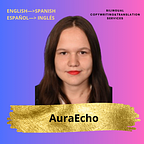LANGUAGE | LANGUAGE LEARNING | EDUCATION
Rethinking Language Education: Beyond Verb Conjugation
Exploring Creative Alternatives to Traditional Teaching Methods in Language Learning
There are alternative ways to acquire language beyond the conventional methods. Consider exploring more effective options!
Let’s examine why verb conjugation might not be necessary for you.
In our relentless pursuit of personal growth and deeper understanding,
one educational practice stands out for its pervasive yet seldom questioned role:
the traditional focus on rote memorization of verb conjugations.
This method, deeply entrenched in language education, might seem essential but is increasingly recognized as both
- outdated
AND
- limiting
The Problem with Traditional Verb Conjugation
Traditional language learning often revolves around rigid verb tables and grammatical rules.
This approach, akin to learning to paint by
- studying the chemical properties of paint
rather than
- the art of painting itself,
severely limits the learner’s creative and expressive capabilities.
Instead of facilitating real communication, it reduces language to mere transactions, stripping it of its potential to convey deeper layers of human emotion and connection.
The Mechanical Nature of Language Learning
The conventional method focuses heavily on the precision and correctness of verb forms, prioritizing conformity over creativity.
It doing so, it fosters a mechanical relationship with language,
where students:
- become proficient in the technical aspects of grammar
- without appreciating its impact on shaping perceptions of time and existence
Such a system does not encourage exploration or discovery but rather enforces a narrow understanding of language as a fixed set of rules.
A Philosophical Perspective on Language
Reflecting on ancient Eastern philosophies, like Zen, we find a striking critique of conventional language use.
Phrases like:
“to point at the moon is not to see the moon”
illustrate the limitations of language when used merely as a descriptive tool.
This perspective suggests that true language mastery goes beyond grammatical accuracy and involves an experiential understanding that transcends traditional learning paradigms.
A Call for Transformation in Language Education
What if we could transform our approach to language education?
Imagine replacing outdated verb conjugation drills with methods that engage students in profound discussions about:
- poetry,
- philosophy,
- and life.
Classrooms could become dynamic environments where language serves as a bridge to cultural narratives and personal expression, rather than a barrier constrained by grammatical structures.
The Vision for a New Educational Paradigm
In this new educational model, students would learn language through immersive experiences,
much like one learns music or poetry.
They would explore complex ideas and express emotions not through memorized verb forms but through genuine, creative communication.
This approach not only fosters deeper understanding and connection but also nurtures the intrinsic human capacities for creativity and empathy.
The Benefits of Holistic Language Learning
Shifting to a holistic language learning model has the potential to produce more:
- thoughtful,
- conscious,
- and connected individuals.
It challenges the status quo and pushes against ingrained educational norms, but the potential benefits – enhanced creativity, improved empathy, and deeper cultural appreciation – are immense.
Conclusion: Welcoming a New Path in Language Education
While verbs are an essential component of language,
their traditional teaching through repetitive drills reflects a bygone era’s educational priorities.
It’s time we reassess not just how we teach and learn language, but why.
Education should aim to expand the mind and nourish the soul, not merely train it.
As we stand at thus crossroads, let us choose the path less traveled,
taking on innovative methods that enrich both individual lives and society at large.
By rethinking how we teach and acquire language,
we can transform education from a mundane task into an enriching journey
that prepares students for a more connected and understanding world.
Let us strive to make language learning a gateway to global citizenship and personal information.
I encourage you to share your experience with language acquisition inside the educational system in the comments section.
Your insights can help shape a meaningful discussion about this important topic.
Looking forward to hearing from you!
If you liked my post, I invite you to leave a comment, click (50) claps, and subscribe to get notified when I post!
